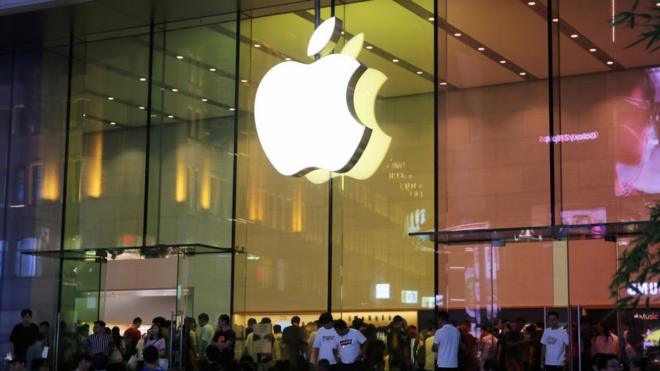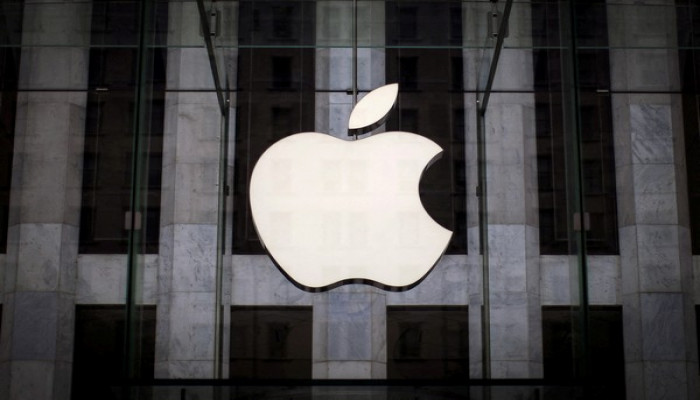Table of Contents
Apple lawsuit Overview

The Apple lawsuit revolves around the accusations made by the US government regarding the tech giant’s alleged monopolization of the smartphone market.
The lawsuit claims that Apple has engaged in anti-competitive practices to maintain its dominance in the industry.
The implications of such monopolistic behavior are far-reaching and can have significant consequences for both Apple and the smartphone market as a whole.
In this article, we will delve into the details of the lawsuit, Apple’s response, and the potential impact on the smartphone industry.
Overview of the US accusations against Apple
The US government has accused Apple of maintaining an illegal monopoly over the smartphone market. They claim that Apple has engaged in anti-competitive practices to lock-in customers and restrict competition.
The accusations include disrupting “super apps” that could reduce iPhone stickiness, blocking cloud-streaming apps, suppressing messaging quality with competing platforms, limiting functionality with third-party smartwatches, and blocking competing digital wallets.
The government alleges that Apple has used contractual rules and restrictions to extract higher prices from consumers and stifle competition.
Implications of monopolizing the smartphone market

Monopolizing the smartphone market can have significant implications for both consumers and the industry as a whole.
When a company like Apple dominates the market, it can limit choices for consumers and stifle innovation.
It can also create barriers for competitors, making it difficult for them to enter the market and provide alternative options for consumers.
Furthermore, a monopoly can result in higher prices for products and services, as there is little competition to drive prices down.
Overall, monopolizing the smartphone market can have negative consequences for competition, choice, and affordability.
History of Apple in the Smartphone Market

Apple’s entry into the smartphone market revolutionized the industry.
In 2007, Apple unveiled the first iPhone, introducing a new era of touch-screen smartphones. The iPhone quickly gained popularity and set the standard for design and functionality.
Over the years, Apple has launched various models, introducing new features such as Face ID and advanced cameras.
With its sleek design and seamless integration with other Apple devices, the iPhone has become a coveted product worldwide.
Apple’s innovation and commitment to delivering high-quality smartphones have solidified its position as a leading player in the smartphone market.
Apple’s evolution in the smartphone industry
When Apple first entered the smartphone market in 2007 with the introduction of the iPhone, it completely revolutionized the industry.
The iPhone quickly gained popularity and set the standard for design and functionality.
With each new iteration, Apple continued to innovate, introducing features such as Face ID, advanced cameras, and improved performance.
The iPhone’s sleek design and seamless integration with other Apple devices have made it a coveted product worldwide.
Over the years, Apple has consistently focused on delivering high-quality smartphones that meet the needs and preferences of users.
Apple’s market dominance and competition
In the smartphone market, Apple has established a dominant position over the years. Its innovative products and loyal customer base contribute to its significant market share.
However, Apple faces intense competition from other smartphone manufacturers, such as Samsung, Huawei, and Google.
These competitors continuously strive to introduce new features and technologies to challenge Apple’s dominance.
As a result, Apple must continually innovate and improve its products to stay ahead in the highly competitive smartphone industry.
Allegations Against Apple

In the recent lawsuit filed by the US government, Apple is accused of maintaining an illegal monopoly over the smartphone market.
The allegations include disrupting “super apps” that could make it easier for iPhone users to switch to competing devices, blocking cloud-streaming apps, suppressing messaging quality with competing platforms, limiting functionality of third-party smartwatches, and blocking competing digital wallets.
These allegations suggest that Apple has used contractual rules and restrictions to stifle competition and extract higher prices from consumers.
Details of the accusations by the US government
The US government has accused Apple of maintaining an illegal monopoly over the smartphone market through various practices.
These include disrupting “super apps” that could enable users to switch to competing devices, blocking cloud-streaming apps, suppressing messaging quality with rival platforms, limiting functionality of third-party smartwatches, and blocking competing digital wallets.
These allegations suggest that Apple has used contractual rules and restrictions to stifle competition and extract higher prices from consumers.
Analysis of the alleged monopoly practices
The allegations against Apple suggest that the tech giant has engaged in anti-competitive practices to maintain its monopoly in the smartphone market.
By blocking rival apps, limiting functionality, and suppressing messaging quality, Apple may have hindered competition and stifled innovation.
If proven true, these practices could have significant implications for the smartphone industry as a whole, as it would highlight the need for fair competition and consumer choice.
It remains to be seen how the legal proceedings will unfold and what impact they will have on Apple and the smartphone market.
Apple’s Response to the Lawsuit
Apple has vehemently denied the accusations made by the US government.
In its official statement, Apple stated that it has always been focused on providing the best user experience and fostering innovation.
The company claims that it operates in a competitive marketplace and that its practices are designed to ensure the safety and security of its users.
Apple has also taken legal actions in response to the lawsuit, indicating its determination to fight the allegations in court.
Apple’s official statement on the accusations

Apple has vehemently denied the accusations made by the US government. In its official statement, Apple stated that it has always been focused on providing the best user experience and fostering innovation. The company claims that it operates in a competitive marketplace and that its practices are designed to ensure the safety and security of its users.
Apple has also taken legal actions in response to the lawsuit, indicating its determination to fight the allegations in court.
Legal actions taken by Apple in response
In response to the lawsuit, Apple has taken legal actions to defend itself.
The company has filed a motion to dismiss the case, arguing that the accusations lack valid legal grounds. Apple asserts that it has always operated within the boundaries of the law and that its practices are not anti-competitive.
The outcome of these legal proceedings will determine the future implications for both Apple and the smartphone market.
Impact on the Smartphone Industry
The lawsuit against Apple has the potential to significantly impact the smartphone industry. If the accusations are proven true, it could lead to major changes in the market dynamics.
Apple’s dominant position in the smartphone market could be challenged, allowing for increased competition and potentially more affordable options for consumers.
The outcome of the lawsuit will shape the future of the industry, as other companies may also face scrutiny over their market practices.
Effects of the lawsuit on Apple’s reputation and market share

The lawsuit against Apple accusing the tech giant of monopolizing the smartphone market could have significant effects on Apple’s reputation and market share.
If the allegations are proven true, it could tarnish Apple’s image as a trusted and innovative company.
Additionally, if Apple lawsuit is found guilty, it may face fines and changes in its business practices, potentially impacting its market share and giving competitors an opportunity to gain ground.
Consumers may also reconsider their loyalty to the brand if the allegations are substantiated.
Potential changes in the smartphone market

With the lawsuit against Apple accusing the company of monopolizing the smartphone market, there could be potential changes in the industry.
If Apple is found guilty, there may be a push for more regulation and oversight to prevent monopolistic practices in the future.
This could lead to increased competition and innovation among smartphone manufacturers, ultimately benefiting consumers with more choices and better products.
Additionally, the outcome of the lawsuit could set a precedent for other tech giants, potentially leading to further investigations and lawsuits in the industry.
Overall, the smartphone market could undergo significant changes depending on the outcome of the Apple lawsuit.
Conclusion and Future Implications
In conclusion, the Apple lawsuit accusing the tech giant of monopolizing the smartphone market has significant implications for both Apple and the smartphone industry as a whole.
The outcome of the lawsuit could lead to regulatory changes, increased competition, and greater innovation in the market.
It also serves as a reminder of the importance of fair competition and consumer choice.
Moving forward, it will be interesting to see how the lawsuit unfolds and its long-term effects on the industry.
Summary of the Apple lawsuit proceedings

The Apple lawsuit accusing the tech giant of monopolizing the smartphone market has been a highly-publicized legal battle.
The US government has alleged that Apple has engaged in various anti-competitive practices, including limiting functionality, blocking third-party developers, and imposing restrictive contractual rules.
Apple has responded by defending its actions and denying the accusations.
The lawsuit is ongoing, and its outcome will have significant implications for both Apple and the smartphone industry as a whole.
Potential outcomes and future implications for Apple and the smartphone market
The outcome of the Apple lawsuit will have significant implications for both Apple and the broader smartphone market. If Apple is found guilty of monopolizing the smartphone market, it could face hefty fines and legal repercussions.
This could also lead to increased scrutiny and regulation of Apple’s business practices.
Additionally, if Apple lawsuit is forced to change its practices, it could open up opportunities for competition and innovation in the smartphone industry.
Ultimately, the outcome of this lawsuit has the potential to reshape the smartphone market and create a more level playing field for all companies involved.
FAQ
What is the recent lawsuit against Apple about?
The Department of Justice (DOJ) has filed a lawsuit against Apple, alleging that the tech giant has maintained an illegal monopoly in the smartphone market.
This is said to be accomplished by Apple through various strategies that lock in customers and degrade experiences for rival products.
Will this lawsuit affect consumers directly?
The direct short-term effects on consumers may be limited, but in the long run, if Apple is required to change certain practices, consumers might see more competitive pricing, better interoperability with non-Apple devices, and more choices in apps and accessory compatibility.
What has been Apple’s response to this lawsuit?
As of the knowledge cutoff for this FAQ, we do not have details on Apple’s official response to the lawsuit.
Apple typically defends its practices by citing the security, privacy, and quality benefits that its tight ecosystem integration provides.
We’re curious to see how this situation unfolds and what the impacts will be for innovation, competition, and user experience. What are your thoughts on these allegations?
Do you think the DOJ’s case has merit, or do you stand by Apple’s approach to its ecosystem?
Take a moment to share your opinions with us, and let’s discuss the potential outcomes of this legal face-off.
Keep an eye on our blog for further updates as we continue to break down the complexities of this lawsuit and what it means for the future of smartphones.
Your insights are valuable, and we look forward to engaging with you on this pressing issue.




